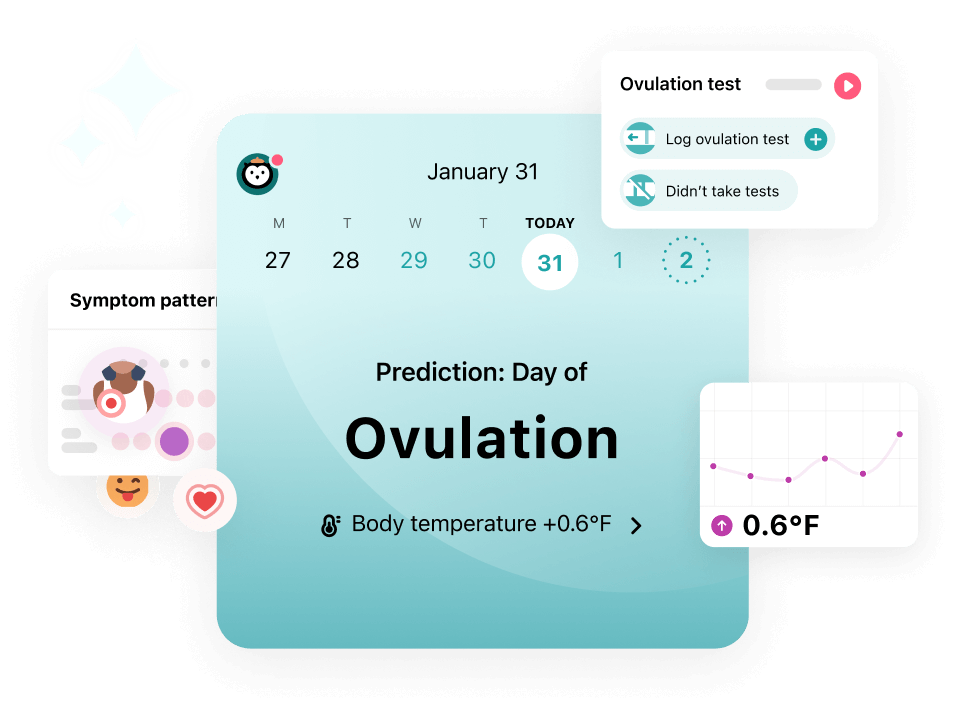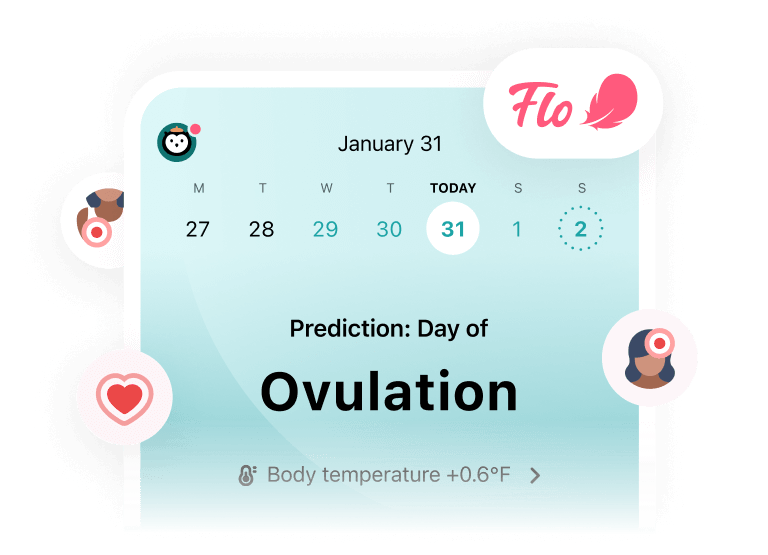It’s totally normal for your vagina to have a scent, but what if yours smells strong or fishy? Here’s the lowdown on fishy vaginal odor.
-
Tracking cycle
-
Getting pregnant
-
Pregnancy
-
Help Center
-
Flo for Partners
-
Anonymous Mode
-
Flo app reviews
-
Flo Premium New
-
Secret Chats New
-
Symptom Checker New
-
Your cycle
-
Health 360°
-
Getting pregnant
-
Pregnancy
-
Being a mom
-
LGBTQ+
-
Quizzes
-
Ovulation calculator
-
hCG calculator
-
Pregnancy test calculator
-
Menstrual cycle calculator
-
Period calculator
-
Implantation calculator
-
Pregnancy weeks to months calculator
-
Pregnancy due date calculator
-
IVF and FET due date calculator
-
Due date calculator by ultrasound
-
Medical Affairs
-
Science & Research
-
Pass It On Project New
-
Privacy Portal
-
Press Center
-
Flo Accuracy
-
Careers
-
Contact Us
Common causes of fishy vaginal odor and what to do about it


Every piece of content at Flo Health adheres to the highest editorial standards for language, style, and medical accuracy. To learn what we do to deliver the best health and lifestyle insights to you, check out our content review principles.
Key takeaways
- Remember that your vagina is an organ, not a flower, so it’s normal to have a slight odor.
- But fishy vaginal odor can indicate an infection like bacterial vaginosis (BV), trichomoniasis, or even certain sexually transmitted infections (STIs).
- Practicing safe sex, good hygiene, and getting routine checkups can prevent and sort out fishy vaginal odor.

Understand your fertility better with the Flo app
- Learn more about your fertility signals
- Improve ovulation predictions by tracking temperature via Apple Watch
- Log your ovulation test results

Trying to conceive?
The Flo app can help you better understand your fertility

Understand your fertility better with the Flo app
- Learn more about your fertility signals
- Improve ovulation predictions by tracking temperature via Apple Watch
- Log your ovulation test results
What causes a fishy vaginal odor?
It’s perfectly normal for a healthy vagina to have an odor, but a strong or foul-smelling scent can be a sign that something isn’t quite right down there. Fishy vaginal odor is most commonly associated with bacterial vaginosis (more on that below), but there are other possible causes. So, what exactly causes a fishy vaginal smell, and how can you treat it?
Bacterial vaginosis
BV is one of the main culprits behind a fishy vaginal odor. Around 35% of people with a vagina will get it at some point in their life. BV is caused by an imbalance of vaginal flora, which is the bacteria that live in your vagina and protects you from infections. The main symptom of BV is a fishy-smelling discharge that is thin or watery in consistency and white or gray in color.
You might be curious as to what causes BV. Sex is one of the most common triggers (especially if you switch between anal and vaginal sex), but it’s not an STI. Although it’s relatively common, you should treat it as soon as possible, and luckily, BV is easily treated with a course of antibiotics. Your doctor may also suggest a topical solution to ease unpleasant symptoms. And remember, after going to the toilet, always wipe from front to back to avoid bacteria spreading.
Trichomoniasis and other STIs
A fishy vaginal smell can also be caused by an STI called trichomoniasis, which affects 3.7 million people in the United States. Aside from being very common, trichomoniasis is also highly treatable.
Also known as “trich,” it occurs when a parasite called Trichomonas vaginalis is transmitted during sex. Anyone can get trich, and symptoms include:
- An itchy, swollen, or sore vulva and area around the opening of your vagina
- Pain when peeing and having sex
- Frothy yellow-green discharge
- Unpleasant smelling vaginal odor
That said, only 30% of people with trichomoniasis show any symptoms. That’s why it’s crucial to get regular STI screenings — especially if you’re having sex with different partners. Although it can be tempting, don’t try to self-diagnose trichomoniasis. See your health care professional instead for advice.
Pelvic inflammatory disease
Pelvic inflammatory disease (PID) is another possible reason for that unpleasant smelling vaginal odor. It’s essentially a vaginal infection that spreads upward into your reproductive tract, including your uterus, uterine tubes, and ovaries. While PID is its own condition, it’s always triggered by something else, such as an untreated STI or BV. It’s pretty common; an estimated 1 million cases are reported annually in the United States. Symptoms of PID include:
- An unpleasant-smelling vaginal odor (you might describe it as fishy)
- Pain or discomfort in your pelvis and lower tummy
- Pain during penetrative sex and when you’re peeing
- Bleeding between periods and after penetrative sex
It’s important to consult your obstetrician and gynecologist (OB-GYN) or health care provider if you notice any of these symptoms because PID can cause long-term health issues, including infertility. When diagnosed early, PID can be treated with antibiotics.
Excessive sweating
Sweat is the body’s way of cooling itself down when it’s overheating. Exercise, warm weather, and anxiety can all make you sweat. Although it’s a perfectly healthy bodily function, when sweat mixes with the bacteria found on the skin of your vulva and pubic hair, it can make your vaginal area smell different — maybe even be a little bit unpleasant. However, if you notice a fishy vaginal odor after you sweat, then it could be a sign of an infection, and you should speak to your health care provider.
You can avoid any unpleasant odors caused by excessive sweating by prioritizing good hygiene and wearing breathable, natural fabrics.
Poor hygiene
If you notice an unpleasant vaginal odor with no discharge and/or itching, you may be able to solve the problem by practicing good hygiene. This includes:
- Wiping from front to back after going to the bathroom to prevent getting a urinary tract infection (UTI)
- Peeing after sex to prevent getting a UTI
- Changing your underwear once a day (or more if you sweat a lot) and not wearing underwear when you sleep
- Using unscented laundry detergent to wash your underwear
- Bathing/showering your entire body with a gentle cleanser and only using warm water to wash your vulva
It may be tempting to vigorously clean the inside of your vagina or try to mask the smell if you notice a fishy vaginal odor. But the truth is, products like douches, cleansers, and deodorants can alter your vaginal pH, which could make the situation worse and lead to an infection. So, it’s best to avoid them altogether.

An old tampon
A foul, pungent vaginal odor can be caused by a forgotten tampon. If you wear a tampon for longer than recommended (around four to eight hours), bacteria have a chance to multiply on the surface of the tampon and cause infection. It’s incredibly rare, but leaving a tampon in for too long can also increase the risk of developing toxic shock syndrome (TSS).
If you’re forgetful, it can be helpful to set a reminder on your phone to change your tampon every four to six hours or sooner, according to your menstrual flow and the tampon absorbency. When in doubt, check what it says on the back of the tampon box.
If you’ve left a tampon in for too long, try to carefully remove it as soon as possible. Seek medical attention if you can’t remove it or if you suddenly experience a high fever, pain when you pee, abnormal discharge with an unpleasant smell, abdominal pain, itching, or swelling.
Menstrual cycle and hormonal changes
During your cycle and before the start of your period, your hormones fluctuate. This is totally normal and can change the bacteria and acidity levels of your vaginal flora. This might change the smell of your vagina and discharge, and you may even describe it as fishy. However, this could also be a sign of an infection, so it’s best to speak to your health care provider.
During your period, the blood (which can have a metallic smell) leaves your body through your vagina. Due to the fact that you have iron in your blood, you might pick up on this change in smell.
Hormonal shifts during pregnancy and menopause can also change how your vaginal odor smells. However, if you notice any changes to the smell or consistency of your discharge during pregnancy, then you should reach out to your doctor.
Sex
Have you ever noticed a fishy smell during or after sex? Well, you wouldn’t be alone. Sex can change the way your vagina smells, even when you haven’t contracted an STI. Penetrative sex can introduce new bacteria into your vagina and change your vaginal pH and smell. Semen also has a higher pH than the vaginal microbiome, which can be another reason why you notice a different vaginal smell after sex.
Diet
You might have heard that your diet can affect how your vagina smells, but there’s very little medical research to back up this claim. You might have noticed that your pee smells slightly different after you’ve eaten foods like asparagus or drank lots of caffeinated products like coffee. However, this doesn’t change the way your discharge smells. While it’s important to make sure you eat a balanced and healthy diet to maintain your overall health, there’s little proof that your diet or supplements can change the way your vagina smells.
What about “normal” vaginal odor?
It’s completely normal for your vagina to have a smell. Despite what a lifetime of misinformation may have led you to believe, vaginas are not meant to be odorless. How your vagina smells is unique to you. It might smell tangy or sweet. It’s understandable if you’re self-conscious about the way your vagina and vulva smell, but in most cases, it’s perfectly healthy. While there’s a whole market of washes and soaps for vaginas and vulvas, you don’t need to use them to remove the odor because vaginas are self-cleaning. Just use water.
What causes vaginal odor?
The bacteria that naturally live in your vagina are responsible for its odor. They make up your vaginal microbiome and help to keep your vagina healthy.
How is abnormal vaginal odor diagnosed?
Foul or fishy-smelling vaginal odor can be a sign of an infection, so getting acquainted with how your vagina typically smells (and what is “normal” for your body) can make it easier to spot when something isn’t quite right.
There is no specific diagnostic test for abnormal vaginal odors, but your doctor or OB-GYN will keep an eye (or nose) out for unusual or worrying vaginal smells, such as fishy-smelling discharge during a routine pelvic exam. If you think you have an infection, then your doctor might take a sample from your vagina or ask for a sample of your pee to send off for testing. They’ll probably also ask you if you’re experiencing any other symptoms or changes.
Treatment of fishy vaginal odor
The treatment for fishy vaginal odor will depend on what is causing your symptoms. In the case of BV or STIs like trichomoniasis, your doctor will prescribe a course of antibiotics. These can come in the form of vaginal creams or oral pills.
It’s crucial that you consult your doctor before seeking any treatment because even though different infections can cause a fishy vaginal smell, they won’t necessarily have the same treatment.
Can vaginal odor be prevented?
Vaginas have an odor, and that’s OK. No amount of effort will stop your vagina from having a slight smell, but there are some things you can do to prevent strong, foul, or fishy vaginal odor.
Switch to gentle, fragrance-free cleansers
Scented soaps, bubble baths, and vaginal deodorants are often marketed as “safe,” but they can change the balance of your vaginal flora and make things worse. Gently cleanse your vulva with water, and never use harsh or scented soaps or try to clean the inside of your vagina.
Avoid douching
The vagina is a self-cleaning organ, so there is no need to use douches! At best, they’re a waste of money, and at worst, they can disrupt your natural pH and increase the risk of BV and STIs that cause fishy vaginal odor.
Practice safe sex
Sex is a common trigger for a fishy vaginal smell, so remember to always practice safe sex and use a barrier method (like condoms and/or dental dams), wash sex toys before and after using them, and change condoms when switching between anal and vaginal penetration.
Get regular checkups
Going to the OB-GYN for an STI checkup is hardly anyone’s idea of fun, but they’re the best way to stay on top of your health. Many infections can be asymptomatic (meaning they don’t cause noticeable symptoms), so it’s important to get tested and stay up to date with routine checkups to prevent them from getting any worse.
Should I be concerned about a fishy vaginal odor during pregnancy?
Noticing a fishy odor either in your urine or vaginal discharge while you’re pregnant is a potential sign of an infection. Left untreated, the condition could lead to serious complications, so reach out to your health care provider right away. If you’ve recently given birth, a fishy vaginal odor may be a sign of a postpartum infection, so get in touch with your OB-GYN for a follow-up.
When to see a health care provider for fishy vaginal odor
If you’re experiencing a persistent fishy vaginal odor, don’t panic! It’s always a good idea to be better safe than sorry and check in with your OB-GYN to get things sorted out. This is especially important if you’re also experiencing itching, burning, or bleeding. You know your body best, so get a second opinion if you’re concerned.
Take a quiz
Find out what you can do with our Health Assistant
FAQs
Why do I smell fishy even with good hygiene?
If you notice a fishy odor coming from your vagina, it could be a sign of a vaginal infection like BV or an STI like trichomoniasis. While practicing good personal hygiene is important, it may not be enough to prevent fishy vaginal odor. It’s important to see a health care provider to determine the underlying cause of a fishy vaginal smell and treat it accordingly.
Can bacterial vaginosis go away on its own?
Although BV can sometimes go away on its own, it’s best to seek treatment to prevent the risk of more serious health issues like PID and fertility problems. Remember that infections like BV can often be asymptomatic, so you might still have BV even if you don’t have fishy-smelling discharge anymore. The good news is that BV is easily treated with antibiotics.
What is the best product for vaginal odor?
Your vagina is self-cleaning, so you don’t need any products to clean it. To keep your vulva clean, all you need is water! If you must use a product, you can use a gentle, fragrance-free cleanser. And remember: it’s normal and healthy for your vagina to smell.
Changing your underwear every day and changing your pad or tampon regularly while you’re on your period can also prevent any unwanted, strong vaginal odor.
References
“Bacterial Vaginosis.” Cleveland Clinic, my.clevelandclinic.org/health/diseases/3963-bacterial-vaginosis. Accessed 29 Aug. 2023.
“Urine Smell: What Does It Mean?” Cleveland Clinic, 13 Oct. 2022, health.clevelandclinic.org/why-does-my-urine-smell/.
“Body Odor.” Cleveland Clinic, my.clevelandclinic.org/health/symptoms/17865-body-odor. Accessed 29 Aug. 2023.
Cottrell, Barbara Hansen. “An Updated Review of Evidence to Discourage Douching.” MCN: The American Journal of Maternal Child Nursing, vol. 35, no. 2, Mar.–Apr. 2010, pp. 102–07; quiz 108–09, doi: 10.1097/NMC.0b013e3181cae9da.
Hildebrand, Jason P., and Adam T. Kansagor. “Vaginitis.” StatPearls, StatPearls Publishing, 2022, www.ncbi.nlm.nih.gov/books/NBK470302/.
Kairys, Norah, and Manish Garg. “Bacterial Vaginosis.” StatPearls, StatPearls Publishing, 2023, www.ncbi.nlm.nih.gov/books/NBK459216/.
Lin, Yen-Pin, et al. “Vaginal pH Value for Clinical Diagnosis and Treatment of Common Vaginitis.” Diagnostics, vol. 11, no. 11, Oct. 2021, https://doi.org/10.3390/diagnostics11111996.
Moldenhauer, Julie S. “Infections of the Uterus after Delivery.” MSD Manual Consumer Version, Sep. 2022, www.msdmanuals.com/home/women-s-health-issues/postpartum-care/infections-of-the-uterus-after-delivery.
Mogilnicka, Izabella, et al. “Microbiota and Malodor: Etiology and Management.” International Journal of Molecular Sciences, vol. 21, no. 8, Apr. 2020, https://doi.org/10.3390/ijms21082886.
Tough DeSapri, Kristi A. “Pelvic Inflammatory Disease.” Medscape, 16 Aug. 2021, emedicine.medscape.com/article/256448-overview.
“Pelvic Inflammatory Disease (PID).” Mayo Clinic, 30 Apr. 2022, www.mayoclinic.org/diseases-conditions/pelvic-inflammatory-disease/symptoms-causes/syc-20352594.
“Pelvic Inflammatory Disease (PID).” The American College of Obstetricians and Gynecologists, June 2022, www.acog.org/womens-health/faqs/pelvic-inflammatory-disease.
Brusch, John L. “Prevention of Urinary Tract Infection (UTI) in Women.” Medscape, 1 Apr. 2021, emedicine.medscape.com/article/1958794-overview.
“Trichomoniasis: CDC Basic Fact Sheet.” Centers for Disease Control and Prevention, www.cdc.gov/std/trichomonas/stdfact-trichomoniasis.htm. Accessed 29 Aug. 2023.
Surhone, Lambert M., et al. Vulvovaginal Health. Betascript Publishing, 2010.
“Sweating.” MedlinePlus, medlineplus.gov/ency/article/003218.htm. Accessed 29 Aug. 2023.
“Toxic Shock Syndrome.” NHS, www.nhs.uk/conditions/toxic-shock-syndrome/. Accessed 29 Aug. 2023.
“Trichomoniasis.” Cleveland Clinic, my.clevelandclinic.org/health/diseases/4696-trichomoniasis. Accessed 29 Aug. 2023.
Sobel, Jack D. “Vaginitis in Adults: Initial Evaluation.” UpToDate, www.uptodate.com/contents/vaginitis-in-adults-initial-evaluation. Accessed 29 Aug. 2023.
“Vaginal Odor.” Mayo Clinic, 25 Feb. 2022, www.mayoclinic.org/symptoms/vaginal-odor/basics/causes/sym-20050664.
“Vaginal Odor.” Cleveland Clinic, my.clevelandclinic.org/health/symptoms/17905-vaginal-odor. Accessed 29 Aug. 2023.
“Vulvar Care.” Cleveland Clinic, my.clevelandclinic.org/health/articles/4976-vulvar-care. Accessed 29 Aug. 2023.
“Vaginal Discharge in Pregnancy.” NHS, www.nhs.uk/pregnancy/related-conditions/common-symptoms/vaginal-discharge/. Accessed 29 Aug. 2023.
“What if I Forget to Remove My Tampon?” NHS, www.nhs.uk/common-health-questions/sexual-health/what-if-i-forget-to-remove-my-tampon/. Accessed 29 Aug. 2023.
“Why Does Asparagus Make Your Pee Smell?” Cleveland Clinic, 22 Feb. 2021, health.clevelandclinic.org/why-does-asparagus-make-your-pee-smell/.
“You Don’t Need Fancy Products for Good Feminine Hygiene.” Mayo Clinic Health System, 2 Nov. 2016, www.mayoclinichealthsystem.org/hometown-health/speaking-of-health/you-dont-need-fancy-products-for-good-feminine-hygiene.
“Your Changing Body: Puberty in Girls.” The American College of Obstetricians and Gynecologists, June 2022, www.acog.org/womens-health/faqs/your-changing-body-puberty-in-girls.
“Is Peeing after Sex Important?” Cleveland Clinic, 1 Feb. 2022, health.clevelandclinic.org/peeing-after-sex/.
History of updates
Current version (08 September 2023)
Published (22 January 2019)
In this article
Understand what your symptoms might mean — and what's normal for you — by tracking your cycle.





